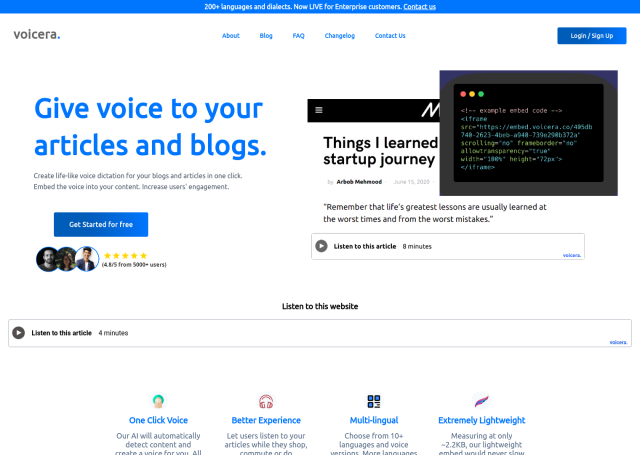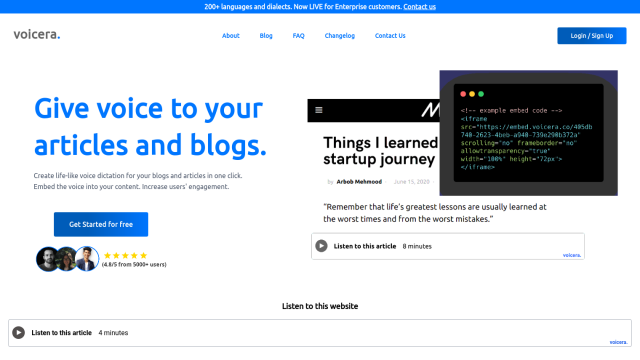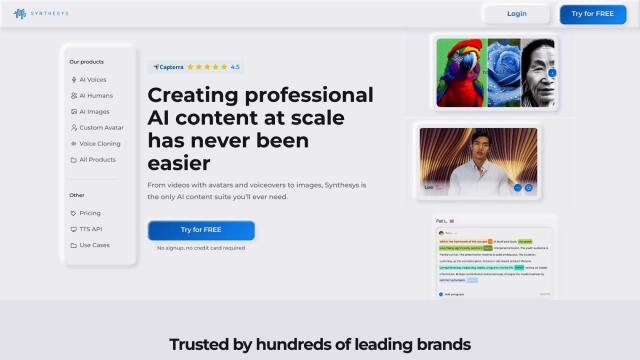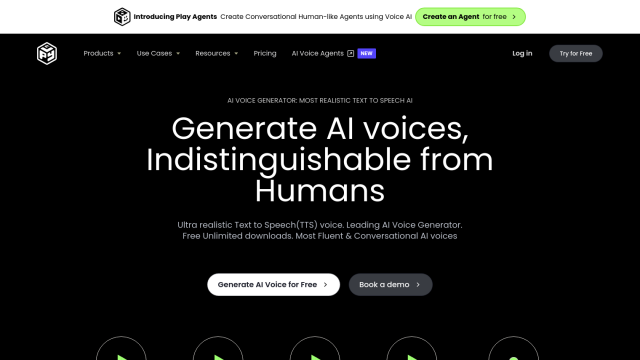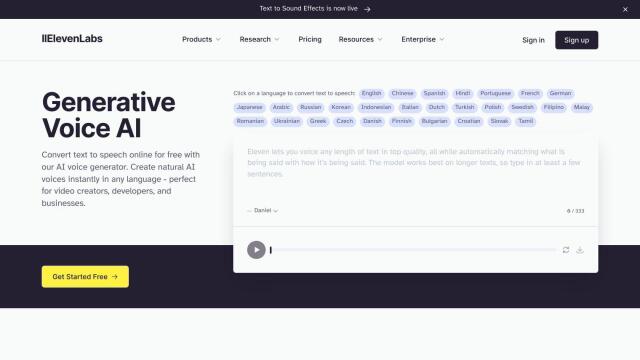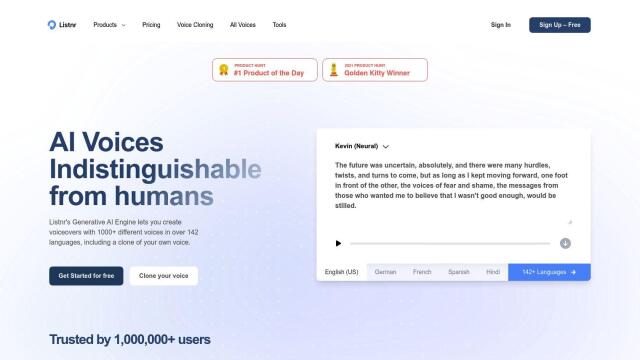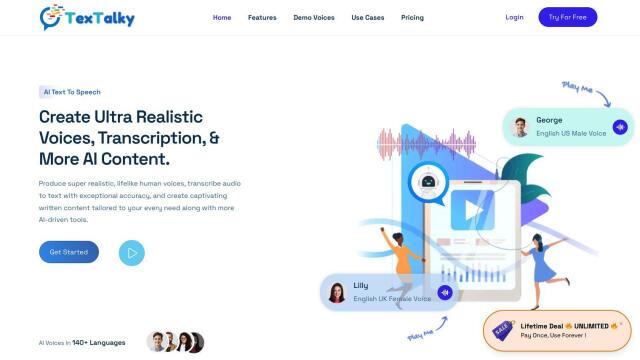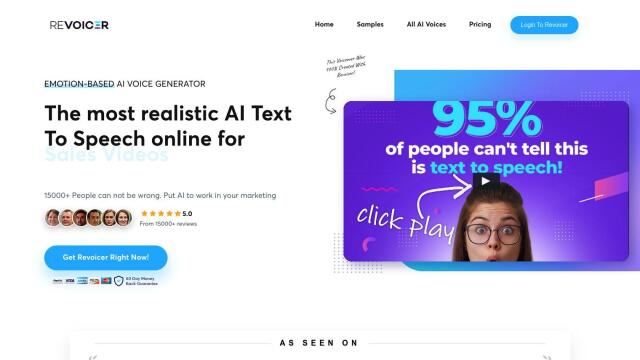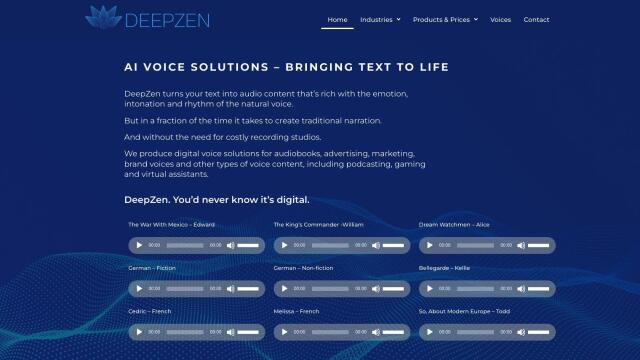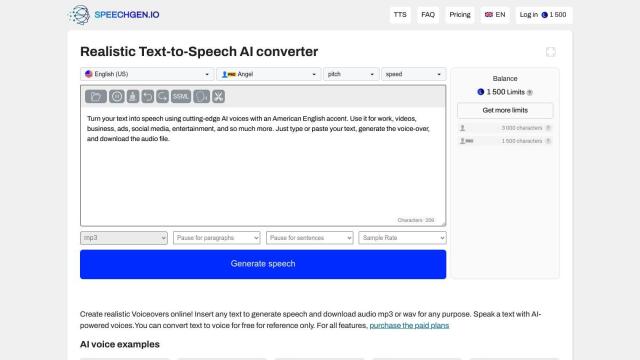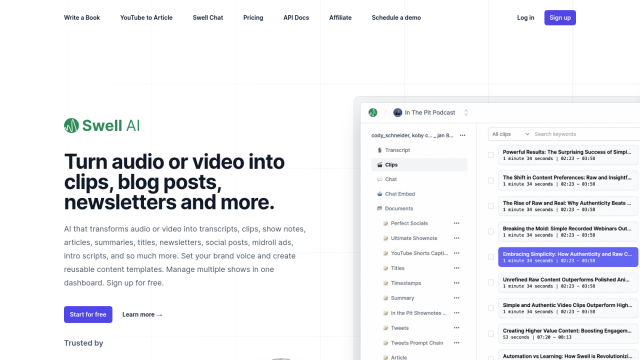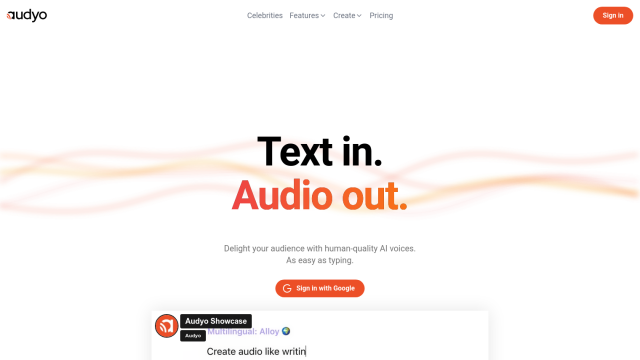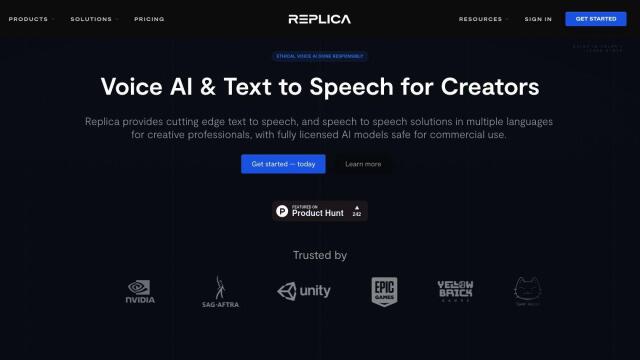
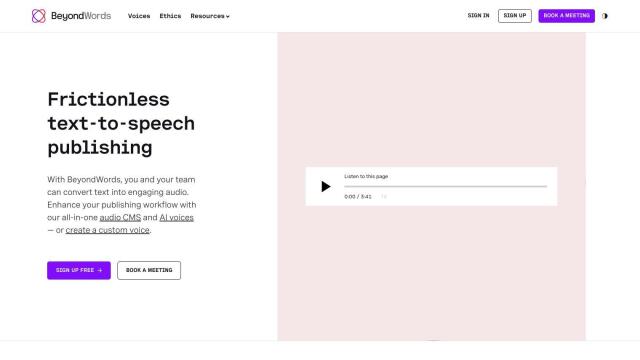
BeyondWords
If you're looking for a replacement for Voicera, BeyondWords is another good option. This text-to-speech AI platform converts written content into engaging audio with lifelike synthetic voices and a range of customization options. It can handle a variety of content formats, and it comes with a full audio content management system, including tools for creation, distribution, measurement and monetization.


Blogcast
Another good competitor is Blogcast, which converts written content into natural-sounding voice overs with AI technology. It also offers automated podcasting, video voice overs and audiobooks, with a library of more than 110 neural voices and 25+ languages. Blogcast also has an easy-to-use interface and a variety of pricing options, including monthly and annual subscriptions, so you can easily fit it into your workflow.


WellSaid Labs
If you're looking for high-quality, lifelike audio content, WellSaid Labs is another option. The platform lets you convert text to voice quickly and easily, with a library of AI voices in different tones and accents. It's geared for a variety of use cases, including advertising, corporate communications and eLearning materials, and offers flexible production options and scalability.
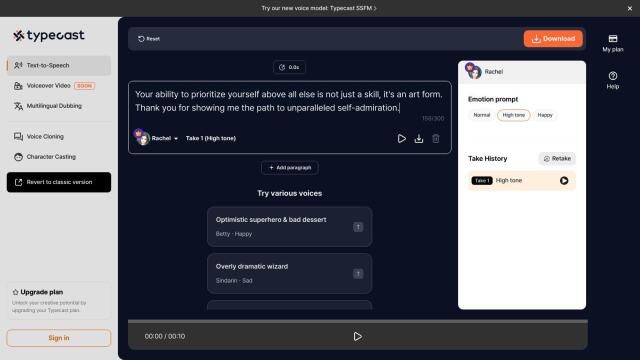
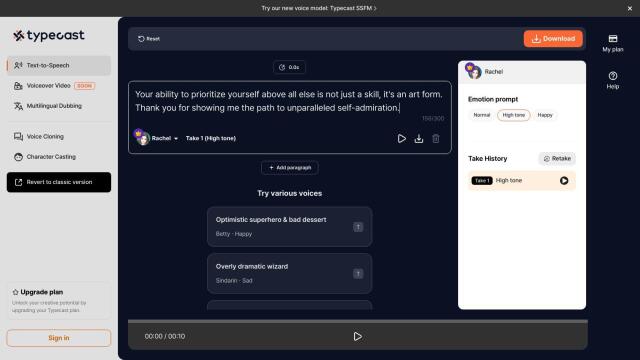
Typecast
Last, Typecast has a different approach with its AI voice generator that converts text into lifelike speech with emotional nuance. It's got a library of more than 400 hyper-realistic voices and avatars, so it's good for creating polished audio and video content quickly and cheaply. Typecast supports seven languages and has a variety of pricing options depending on your needs.
